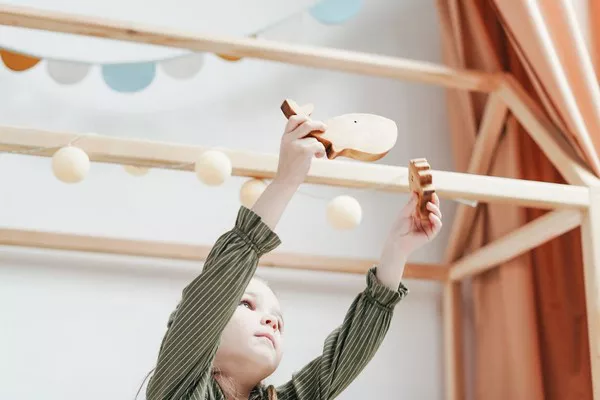Welcoming a baby into the world is a joyous experience, and each passing month brings new discoveries and milestones. As your little one reaches the six-month mark, their cognitive and physical abilities are rapidly developing. It’s an exciting time to engage them in activities that promote their growth and exploration. In this article, we will explore various ways to stimulate your 6-month-old’s development through play, sensory experiences, and social interactions. By understanding their developmental milestones and tailoring activities to their needs, you can provide a nurturing environment for your baby’s continued growth.
Cognitive Development
At six months, your baby’s cognitive abilities are flourishing. They begin to show greater awareness of their surroundings, demonstrate object permanence, and exhibit curiosity about the world. To enhance their cognitive development, consider the following activities:
a. Peek-a-boo: Engage your baby in this classic game, which helps develop their understanding of object permanence while strengthening the bond between you and your child.
b. Interactive toys: Introduce age-appropriate toys that encourage exploration, such as brightly colored blocks, nesting cups, or toys with different textures and sounds. These toys promote sensory stimulation and cognitive engagement.
c. Baby books: Introduce board books with simple illustrations, bright colors, and textures. Reading together fosters a love for books and builds early language skills.
Motor Development
Around the six-month mark, your baby begins to demonstrate remarkable progress in their motor skills. From grasping objects to sitting with support, their physical abilities are expanding rapidly. Here are some activities to support their motor development:
a. Tummy time: Encourage your baby to spend supervised time on their tummy to strengthen their neck, back, and upper body muscles. Place colorful toys within reach to stimulate their curiosity and motivate movement.
b. Rolling and reaching games: Help your baby practice rolling from their tummy to their back and vice versa. Place enticing toys just out of their reach to encourage them to reach, promoting hand-eye coordination.
c. Baby-safe play gym: Invest in a play gym that includes toys suspended above the baby. This will encourage reaching, grasping, and kicking, aiding in the development of fine and gross motor skills.
Sensory Stimulation
Sensory experiences play a vital role in your baby’s cognitive and emotional development. At six months, their senses are more attuned, and they delight in exploring the world through touch, sight, sound, smell, and taste. Consider the following sensory activities:
a. Sensory bins: Fill a shallow container with various safe materials like cooked pasta, textured fabrics, or soft toys. Allow your baby to explore the different textures and shapes, stimulating their senses.
b. Music and rhymes: Singing songs, playing musical instruments, or using rattles and shakers expose your baby to different sounds, rhythm, and language. This not only provides sensory stimulation but also enhances their auditory development.
c. Water play: Supervised water play, such as splashing in a baby tub or a shallow basin, allows your little one to experience different water temperatures, textures, and movements. It can be a calming and enjoyable sensory activity.
Social Interactions
At six months, your baby’s social skills begin to emerge, and they crave interaction with loved ones. Engaging in social activities helps foster emotional bonds and promotes healthy social development. Consider the following ideas:
a. Face-to-face play: Make eye contact, smile, and talk to your baby during playtime. Your expressions and responses help them understand emotions and develop communication skills.
b. Baby playdates: Arrange playdates with other babies of a similar age. This allows your baby to observe and interact with their peers, enhancing socialization and communication skills.
c. Baby-friendly classes: Enroll your baby in age-appropriate classes like music or baby yoga. These classes provide structured social interactions and expose your little one to new experiences while offering opportunities for parent-baby bonding.
Conclusion
The first year of your baby’s life is a period of rapid growth and development. By engaging in activities that stimulate their cognitive, motor, sensory, and social skills, you can provide a nurturing environment that supports their overall development. Remember to follow your baby’s cues and adapt activities to their individual needs and interests. As you witness the wonder and joy on their face, cherish these moments and embrace the incredible journey of parenthood.


